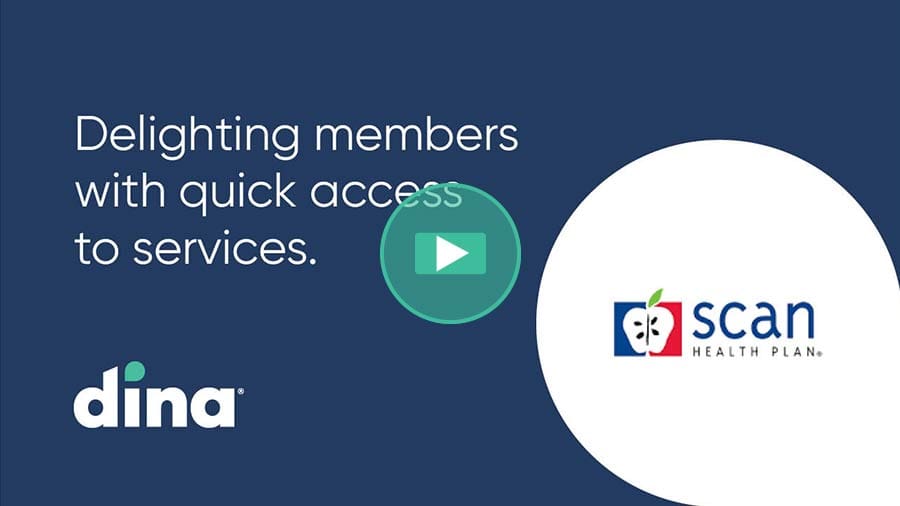
Proposed rules from CMS are pushing health plans to demonstrate value and return on the investments they’re making in products, benefits and services.
Historically, health plans have used products and benefits to attract and retain their membership. Now, there’s pressure around data collection, and linking that information to outcomes.
“CMS is making it clear that they are expecting a return on the taxpayer dollars being spent on benefits and services,” said Travis Woyner, Dina’s senior vice president of product. “Regulation is coming to government programs and it will phase in transparency around utilization, access and value.”
Shifting from Innovating to Scaling
There have been pockets of innovation, whether it’s personal care services or healthy meal delivery or nutrition programs or home modification, where health plans have identified new benefits that will allow seniors to age in place and, in some cases, avoid institutional care.
“If you look at the proposed rules, it’s preparing innovations for mass market and scale,” said Ashish V. Shah, Dina CEO. “It’s a really exciting moment in time, but there’s some work to do to prepare to go from early models and narrow deployments to scale-up mode, and not a lot of time to get it done.” Shah spoke more about preparing for this new landscape in the webinar: Regulatory Changes are Coming to Supplemental Benefits: Are You Ready?

CMS Interoperability & Patient Access Final Rule
CMS published the Interoperability and Patient Access Final Rule in May 2020 to drive interoperability and patient access to health information. This regulation includes policies which require or encourage payers to implement Application Programming Interfaces (APIs) to improve the electronic exchange of healthcare data—sharing information with patients or exchanging information between a payer and provider or between two payers.
Through this rule, APIs can connect to mobile apps or to a provider electronic health record (EHR) or practice management system to enable a more seamless method of exchanging information.
Highlights:
- Improve data sharing to support dually eligible enrollment processes.
- Impacted payers are required to create provider directories according to new standards via the Provider Directory API.
- Progress on patient access and payer-to-payer data exchange, signaling a push towards transparency.
Ensuring Access to Medicaid Services Rule
The proposed rule Ensuring Access to Medicaid Services (proposed April 2023) would advance CMS’s efforts to improve access to care, quality, and health outcomes, and better promote health equity for Medicaid beneficiaries across fee-for-service (FFS) and managed care delivery systems. This includes home and community-based services (HCBS) provided through those delivery systems.
These proposed requirements are intended to increase transparency and accountability, standardize data and monitoring, and create opportunities for states to promote active beneficiary engagement in their Medicaid programs.
Highlights:
- Establish a new strategy for oversight, monitoring, quality assurance, and quality improvement for HCBS programs.
- Promote public transparency related to the administration of Medicaid‑covered HCBS through public reporting of quality, performance, and compliance measures.
CY 2025 Policy Changes: MA, PDP, PACE, & HIT Rule
In November 2023, CMS issued a proposed rule that would revise the Medicare Advantage Program (MA), Medicare Prescription Drug Benefit Program (Part D), Medicare Cost Plan Program, Programs of All-Inclusive Care for the Elderly (PACE), and Health Information Technology (HIT) Standards and Implementation Specifications.
The proposed policies aim to strengthen beneficiary protections and guardrails to promote healthy competition and ensure MA plans meet the needs of members. In addition, these proposed policies would promote access to behavioral health care providers, promote equity in coverage, and improve supplemental benefits.
Highlights:
- Proposal requires MA plans to inform enrollees of the supplemental benefits available to them to ensure the federal investment of taxpayer dollars in benefits is making its way to beneficiaries and not used only as a marketing tool.
- MA plans maintain bibliographies of relevant research to demonstrate that an SSBCI will maintain or improve outcomes.
- Increase the enrollment period to monthly for integrated D-SNPS.
CMS Interoperability & Prior Authorization Final Rule
Finalized in January 2024, the CMS Interoperability & Prior Authorization Final Rule builds on the technological foundation of the May 2020 CMS Interoperability and Patient Access final rule. The goals of these API policies are to improve patient, provider, and payer access to patient data and reduce the burden of prior authorization processes.
Highlight:
- Impacted payers, which includes MA and Medicaid managed care plans, are required to implement a Provider Access API by January 2027. This API is designed to improve care coordination and is touted as a step to facilitate value based care.
How did SCAN Health Plan reduce the time it takes to initiate services from weeks to days?
Watch this short video to learn more.





